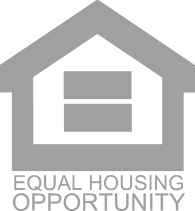Investing with Purpose: Exploring Socially Responsible Real Estate Investments

Introduction
In today’s world, more and more investors are seeking ways to make a positive impact on society while also generating financial returns. Socially responsible investing (SRI) is a concept that allows individuals to invest in projects and initiatives that align with their ethical values. In this article, we will delve into the realm of socially responsible real estate investments and explore the various opportunities available to investors who wish to make a difference in their communities while growing their wealth.
And should you be seeking to start your own socially responsible investing journey, you may require real estate financing to secure the deal. Well, look no further. Contact the REI News team now, and our experts will pair you with the industry’s most affordable and reliable real estate lenders. Get in touch with us today!
Now, let’s take a look at what it means to be a socially responsible investor and how you can ensure your investments add value to the community and the planet.
Understanding Socially Responsible Investing (SRI)
Socially responsible investing (SRI) is an investment approach that takes into account environmental, social, and governance (ESG) factors alongside traditional financial considerations. It aims to generate financial returns while making a positive impact on society and the environment. By investing in socially responsible real estate, individuals can align their investment portfolios with their personal values, creating a more meaningful and purpose-driven investment strategy.
As mentioned, you shouldn’t worry about making a financial return. That is one of the critical determinants of whether an SRI project is viable, so always make sure to plan accordingly.
Types of Socially Responsible Investments
Affordable Housing Initiatives
One of the most impactful ways to invest in socially responsible real estate is through affordable housing initiatives. These projects aim to provide safe and affordable housing options for low-income individuals and families. While the immediate returns may not be the most profitable compared to higher-end housing, by investing in such projects, you not only support the development of sustainable communities but also contribute to addressing the issue of housing affordability.
Affordable housing initiatives often involve partnerships between private investors, non-profit organizations, and government agencies to ensure the successful implementation of these projects. Investing in affordable housing not only provides a stable and dignified living environment for those in need but also has the potential for long-term financial returns.
Community Development Investments
Community development investments focus on revitalizing and enhancing underserved neighborhoods and communities. These investments can involve the construction or renovation of commercial and residential properties, infrastructure development, and support for local businesses. By directing investment capital towards community development projects, investors play a crucial role in stimulating economic growth and improving the quality of life in disadvantaged areas.
These investments have the potential to create jobs, increase access to essential services, and foster social cohesion. Moreover, community development investments can lead to a revitalization of neglected areas, attracting further investments and driving positive change.
Sustainable and Energy-Efficient Buildings
Another area of socially responsible real estate investing revolves around sustainable and energy-efficient buildings. These projects prioritize environmentally friendly design, construction, and operation practices. Sustainable buildings employ strategies such as energy-efficient lighting, renewable energy sources, water conservation measures, and eco-friendly materials. By investing in sustainable buildings, you help reduce carbon emissions, conserve resources, and promote a healthier living environment.
Additionally, these buildings often provide cost savings through reduced energy consumption. As sustainability becomes increasingly important, investing in sustainable real estate can lead to financial gains while contributing to a greener future.
Mixed-Use Developments
Mixed-use developments combine residential, commercial, and recreational spaces within a single project. These developments foster vibrant and inclusive communities by promoting walkability, reducing the need for excessive commuting, and offering a variety of amenities. By investing in mixed-use developments, you contribute to the creation of sustainable and well-rounded neighborhoods that cater to the diverse needs of residents.
These projects often prioritize smart growth principles, incorporating elements such as green spaces, public transportation access, and a mix of housing options. Mixed-use developments provide opportunities for social interaction, economic vitality, and a higher quality of life for residents.
Social Impact Bonds in Real Estate
Social impact bonds (SIBs) are a financing mechanism that allows private investors to fund social programs. In the context of real estate, SIBs can be utilized to finance projects that address social issues such as homelessness, education, or healthcare. By investing in SIBs, you can support initiatives that make a tangible difference in the lives of individuals and communities.
For example, a social impact bond could fund a housing project for homeless individuals, providing them with stable shelter and access to support services. These bonds typically involve collaboration between investors, governments, and non-profit organizations, ensuring the projects achieve their intended social outcomes.
How To Measure Social Impact
When investing in socially responsible real estate, measuring and evaluating your investments’ social impact is essential to ensure you meet all your investment goals, not just your financial ones. Metrics such as the number of affordable housing units created, jobs generated, and community engagement initiatives undertaken can provide insights into the effectiveness of your investments. Monitoring social impact allows investors to ensure that their capital makes a meaningful difference in the world.
Tracking these metrics can provide feedback and data for continuous improvement in future investments. Many organizations and frameworks exist to guide investors in assessing and reporting the social impact of their investments, ensuring transparency and accountability.
Financial Returns of Socially Responsible Real Estate Investments
As mentioned above, contrary to popular belief, socially responsible real estate investments can generate competitive financial returns. While the financial performance of individual projects may vary, research suggests that SRI does not necessarily require sacrificing financial gains. In fact, some evidence does indicate that companies and projects with strong ESG practices tend to outperform their peers over the long term.
By combining your ethical values with diligent market research and investment analysis, you can identify opportunities that align with your financial aspirations while making a positive impact. Additionally, socially responsible real estate investments often benefit from a positive reputation and increased demand, contributing to long-term value appreciation.
The Importance of Due Diligence
When embarking on socially responsible real estate investments, conducting thorough due diligence is crucial. It involves researching the project’s financial viability, the track record of the developers and operators, and the potential risks and rewards involved. Engaging with experienced professionals and seeking expert advice can help mitigate risks and maximize the likelihood of success. Due diligence also extends to assessing the project’s alignment with your ethical values and the social impact it aims to achieve. By carefully evaluating investment opportunities, you can make informed decisions that align with both your financial goals and your commitment to social responsibility.
Conclusion
Investing with purpose is not only about financial gains but also about contributing to positive social and environmental change. Socially responsible real estate investments offer a unique opportunity to make a meaningful impact while growing your wealth. By exploring initiatives like affordable housing projects, community development investments, and sustainable mixed-use developments, you can align your investments with your ethical values and create a better future for communities worldwide. Remember to conduct thorough due diligence and monitor the social impact of your investments to ensure both financial success and positive change.
In conclusion, socially responsible real estate investing allows you to be both an investor and a catalyst for positive change. By directing your capital towards projects and initiatives that align with your ethical values, you can contribute to the development of sustainable communities, address social issues, and generate financial returns. Investing with purpose is a powerful way to make a difference while securing your own future. Embrace the opportunity to invest in socially responsible real estate and be a part of a movement that shapes a better tomorrow.
And when you’re ready to start your socially responsible real estate investment journey, contact us at REI News. We are the experts in sourcing financing options for novice and professional investors alike by pairing them with reliable and affordable lenders. Speak to us to find out more!
FAQs
Q: What is socially responsible real estate investing?
A: Socially responsible real estate investing involves allocating capital to projects and initiatives that prioritize environmental, social, and governance (ESG) factors. It allows investors to make a positive impact on society while generating financial returns.
Q: What are some examples of socially responsible real estate investments?
A: Examples include affordable housing projects, community development investments, sustainable mixed-use developments, and projects that promote energy efficiency and environmental sustainability.
Q: How do socially responsible real estate investments make a difference?
A: These investments contribute to the development of sustainable communities, address social issues such as housing affordability, stimulate economic growth, and promote environmental stewardship.
Q: Can socially responsible real estate investments generate financial returns?
A: Yes, socially responsible real estate investments can generate competitive financial returns. In fact, some evidence shows that companies and projects with strong ESG practices often outperform their peers over the long term.
Q: How can I measure the social impact of my investments?
A: Monitoring metrics such as affordable housing units created, jobs generated, and community engagement initiatives can provide insights into the social impact of your investments. Various frameworks and organizations exist to guide investors in assessing and reporting social impact.
Q: What is the importance of due diligence in socially responsible real estate investing?
A: Due diligence is crucial to assess the financial viability, social impact, and alignment with the ethical values of potential investments. Thorough research and expert advice help mitigate risks and maximize the likelihood of success.
Q: How can I start investing in socially responsible real estate?
A: Start by researching real estate projects that align with your values and financial goals. Consult with professionals in the field, such as financial advisors and real estate experts, to identify suitable investment opportunities.



 Previous Post
Previous Post Next Post
Next Post






